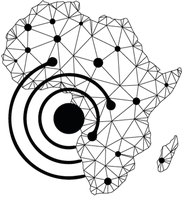INSTRUCTORs
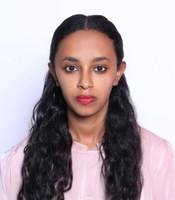
Tsion AYALEW KEBEDE
DILLA UNIVERSITY
My name is Tsion Ayalew Kebede, and I am from Ethiopia. In 2021, I completed my MSc. Degree in Geomatics and Geodesy at Addis Ababa University. Throughout my academic journey and professional experience, I have cultivated a profound interest in the specialized domains of Geodesy and Geomatics. Since 2017, I have actively applied my knowledge in various capacities at Dilla University within the Land Administration and Surveying Department. In this role, I have been involved in teaching a range of courses, including remote sensing, GIS, urban planning, geodesy, cartography, and photogrammetry. I am an Eni PhD Scholar for 2023, selected under the category of Debt in Research: Young Talents from Africa, with a project titled "Modeling the Impact of Climate Change and Variability on Water Resources for Sustainable Development: A Case of East Africa". I also received the RCMRD/GMES and Africa Scholarship in December 2020. I presented my work at the 6th Advances in Geomatics Research Conference (AGRC) in Uganda, and the 5th RCMRD International Conference (RIC 2022) in Kenya. Currently, I am actively engaged in various research endeavors, including serving as a PI.
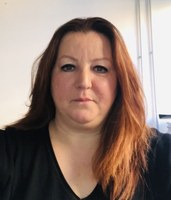
Prof. Barbara CAVALAZZI
ALMA MATER STUDIORUM - UNIVERSITY OF BOLOGNA, ITALY
Since 2012, Prof. Cavalazzi has been affiliated with the University of Bologna. She is an Adjunct Professor at the University of Johannesburg and an Associate Researcher at the IRSP-Univ. of Chieti-Pescara (since 2016) and the INAF OA-Arcetri (since 2021). Her research fields are geobiology and astrobiology. She is interested in the origin of life and primitive habitats, extreme environments, and extremophiles (prokaryotes) and their preservation potential in the geological record. She is an expert in field geobiology, having organized several field campaigns in Africa, Europe, North and South America, and Australia. Dr Cavalazzi is also active in outreach and educational dissemination activities in Italy and African countries.
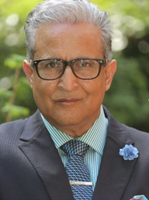
Dr. Sohan JHEETA
Network of Researchers on the Chemical Emergence of Life-NoRCEL
Dr Jheeta defended his PhD entitled “Experimental studies in prebiotic chemistry” at The Open University, UK in 2010, having been supervised by Professor Nigel J Mason OBE. His initial studies largely comprised of astrochemistry. Dr Jheeta’s writing has now progressed to include topics related to the emergence of life on Earth, astrobiology and astrophysics. To this effect, he has written over forty scientific peered reviewed papers, as well as one invited authorship paper and five book chapters and has been published in twenty-four international journals. Internationally, across forty institutes, he has delivered over one hundred and twenty oral presentations including nineteen keynote speeches and has also given thirty-six poster presentations. In 2013 Dr Jheeta created NoRCEL (the Network of Researchers on the Chemical Emergence of Life), of which he is currently Chairman. The group has now evolved into five projects including Astroscience Exploration Network (ASEN); Blue Earth Project (BEP); Frontiers of Sciences (FoS); Latin America Hub (LatAm Hub) including NoRCEL Sessions (NS); and Microbial World Network - with the focus of these projects being on educational and outreach programmes serving the global south.
Further information can be found at: https://norcel.net/ & https://sohanjheeta.com
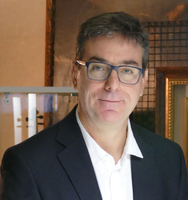
Prof. Roberto OROSEI
ISTITUTO NAZIONALE DI ASTROFISICA-INAF, ITALY
Roberto Orosei was born in Reggio Emilia, Italy. He studied at the University of Bologna and received a Ph.D. degree from the University of Rome "La Sapienza". After spending two years as a Research Fellow at the European Space Research and Technology Centre in Noordwijk, the Netherlands, he moved to the Institute for Space Astrophysics in Rome, where he participated in the design and realization of instruments for solar system exploration missions. He is a science team member of space experiments for the Rosetta and Jupiter Icy Moons Explorer missions of the European Space Agency, and for NASA's Cassini, Mars Reconnaissance Orbiter, Dawn and Juno probes. He is the principal investigator of the MARSIS radar on board ESA's Mars Express spacecraft, which provided evidence of the presence of liquid water beneath the South polar cap of Mars. He currently works at the Institute for Radioastronomy in Bologna and teaches a course of astrobiology at the University of Bologna.
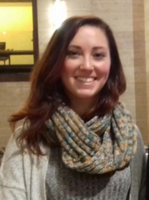
Dr. Rosa SANTOMARTINO
UNIVERSITY OF EDINBURGH, UK
I am a space microbiologist with an interest in understanding how microbes behave under space conditions, and how we could use this knowledge to support space exploration in a sustainable way. I am also keen in understanding how the knowledge acquired by studying these mechanisms can help us solving compelling environmental issues on Earth. During my postdoc, I developed an interest in the concepts of ISRU, BLSS, and more generally how we could harness the power of microorganisms to sustain human space exploration. In 2020, I was invited to collaborate with Italian astrobiologists for the creation of the Italian Space Agency (ASI) Roadmap for Space Life Sciences. Since April 2022, I am pursuing a Leverhulme supported project on plastic-biodegrading microorganisms, which has the aim to study how microorganisms could be used to degrade, recycle and upcycle plastics and other waste (e.g., electronic waste) in space, and how this could inform terrestrial technologies as well. This project is in collaboration with Wallace Lab. I am also part of the Science for Sustainability HUB at the University of Edinburgh. I am strongly committed in supporting equality, diversity and inclusion in academia and anywhere else, and I believe in the importance of public outreach.
